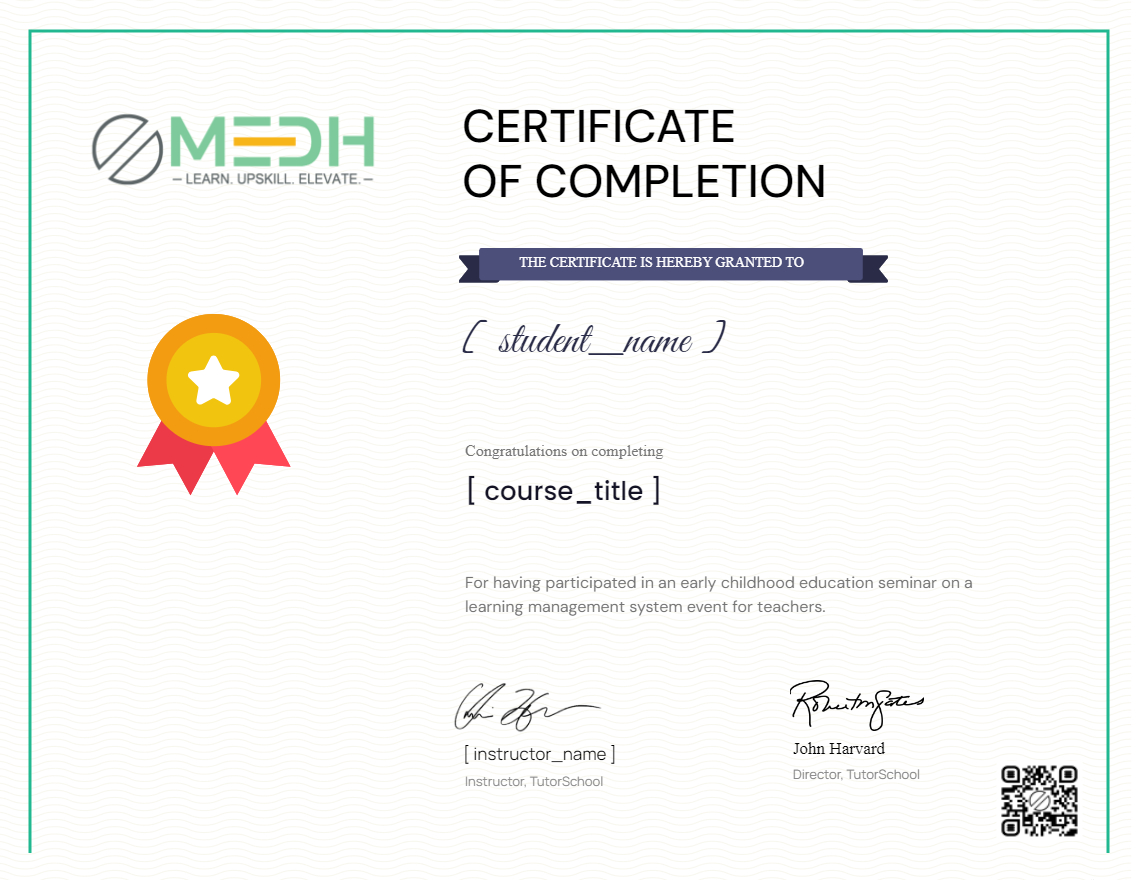DURATION
3 months / 12 weeks
ONLINE SESSIONS
24 (60-90 min each)
MODE
Live Online

About Course
Curriculum
Chapters & Topics
Weeks 1-4: Self-awareness and Emotional Intelligence
– Understanding Self-Awareness and Self-Esteem
– Managing Complex Emotions in Academic and Social Settings
– Coping with Stress, Anxiety and Anger Management
– Building Empathy, Interpersonal Relationships and Resolving Conflicts
Weeks 5-8: Communication Skills and Interpersonal Dynamics
– Advanced Verbal and Non-verbal Communication in Academic and Professional Environments
– Active Listening and Articulate Speaking for Effective Interpersonal Communication
– Assertiveness and Diplomacy in Navigating Conflict and Disagreements
– Understanding and Navigating Group Dynamics and Team Collaboration
Weeks 9-12: Critical Thinking, Decision-making, and Goal Setting
– Setting SMART goals
– Prioritizing tasks and managing time effectively
– Creating a Study Schedule, Overcoming Procrastination
– Recap, Project, Assessment and Certification
Weeks 13-16: Resilience, Stress Management, and Mental Well-being
– Coping with Academic and Personal Pressure, Stress, and Anxiety
– Developing Coping Strategies for Personal, Interpersonal, and Academic Challenges
– Understanding the Importance of Mental Well-being, Self-care, and Self-compassion
– Building Resilience and Perseverance in the Face of Academic and Personal Adversity
Weeks 17-20: Leadership, Team Management, and Collaboration
– Exploring Advanced Leadership Traits, Styles, and Situational Leadership
– Understanding the Importance of Team Management, Delegation, and Empowerment
– Navigating Complex Group Dynamics and Conflict Resolution in Professional Settings
– Building Empathy, Diversity, and Inclusivity in Team Collaboration
Weeks 21-24: Personal Styling and Etiquettes
– Understanding personal style and appropriate dressing for different events.
– Intermediate table manners, dining etiquette, and understanding formal and informal settings.
– Polite and respectful phone conversations, leaving appropriate voicemails.
– Recap, Project, Assessment and Certification
Weeks 25-28: Examination Stress Management
– Coping with Exam Pressure
– Coping with Academic Stress and Performance Anxiety
– Test-taking Strategies and Relaxation Techniques
– Integrating Mental, Physical, and Emotional Well-being
Weeks 29-32: Personal Development and Self-reflection
– Exploring Personal Values, Ethics, and Integrity in Complex Situations
– Developing Self-reflection, Self-improvement, and Personal Growth Strategies
– Understanding and Managing Personal Relationships in Diverse Settings
– Transitioning to Adulthood with Confidence, Self-assurance, and Professionalism
Weeks 33-36: Personal Branding and Digital Communication
– Understanding and Developing Personal Branding for Academic and Social Pursuits
– Advanced Digital Communication Etiquette, and Relevant Online Presence
– Leveraging Technology for Effective Communication, Collaboration, and Networking
– Recap, Project, Assessment and Final Certification
Assessment, Evaluation & Certification (for all Courses)
– Weekly quizzes to gauge comprehension of key concepts
– Practical hands-on assignments
– Thorough evaluation of assignments
– Active engagement in group discussions
– Certification upon Course completion
Note: This curriculum is subject to minor modifications based on the class progress and feedback. Each course is designed to incorporate a mix of interactive activities, case studies, role plays, and reflective exercises to cater to the specific needs and developmental milestones of the respective age group.
Schedule a No-Cost Counselling Session
FAQs
What is the ideal age for a child to start a Personality Development Course?
Children as young as 3 years old can benefit from a Personality Development Course as it lays the foundation for essential life skills, emotional intelligence, and social development.
How does a Personality Development Course benefit young children?
A Personality Development Course for young children lays the groundwork for enhancing self-confidence, communication skills, emotional intelligence, social skills, creativity, and overall personal growth.
What activities are included in a Personality Development Course for young children?
Activities may include storytelling, role-playing, art and craft, music and movement, social games, and group activities aimed at fostering communication, creativity, teamwork, and emotional intelligence.
How does the course help in developing social skills in young children?
The course encourages cooperative play, sharing, turn-taking, and group activities to help children develop social skills, empathy, and positive interactions with peers.
Will the course help my child become more independent and confident?
Yes, the course provides opportunities for children to make choices, solve problems, and express themselves, fostering independence, self-confidence, and a positive self-concept.
What can parents do to support their child's learning from the Personality Development Course?
Parents can reinforce the learning by encouraging positive behavior, engaging in open communication, and providing opportunities for creative play and social interaction at home.
How can parents track their child's progress in the Personality Development Course?
Regular updates from the instructors, observation of the child’s behavior at home, and communication with the child about their experiences can help parents track their child’s progress.
How does the course prepare children for future academic endeavors?
The course lays the foundation for essential skills such as communication, creativity, emotional resilience, and social interaction, which are beneficial for future academic and personal growth.
Note: If you have any other questions or concerns not covered in the FAQs, please feel free to contact our support team, and we’ll be happy to assist you!
Earn a certificate
Add this certificate to your resume to demonstrate your skills & increase your chances of getting noticed.

Select Enrollment Type i Lorem Ipsum
- EMI Options
- Certification
- Efforts
- Sessions
- Assignments
- Quizzes
- Projects

